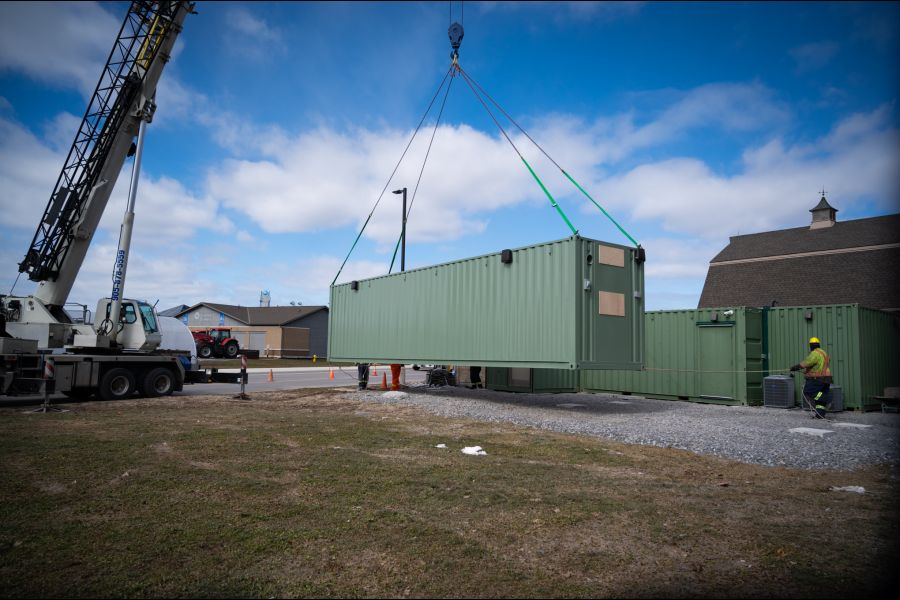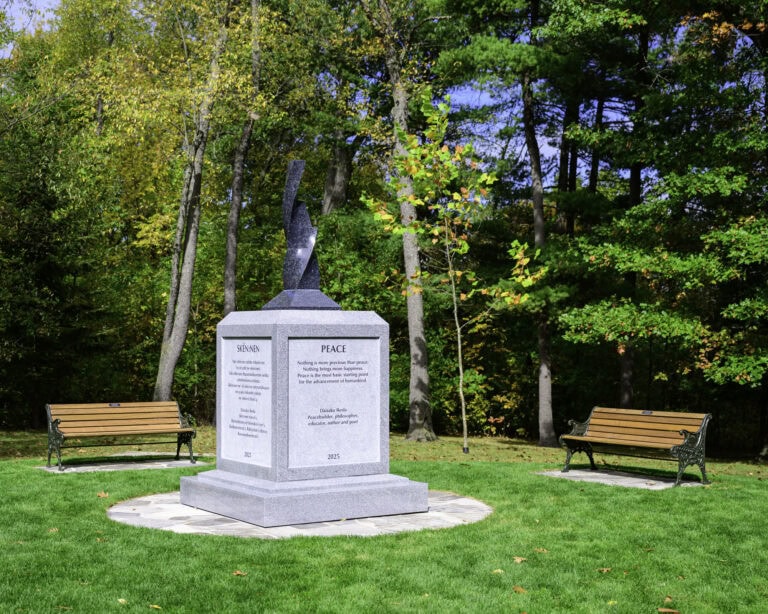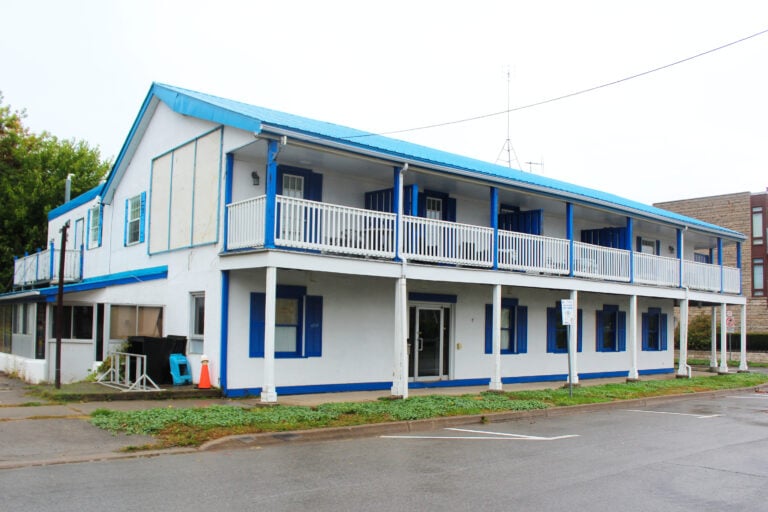Brittney Cutler
Special to Niagara Now/The Lake Report
Niagara College has installed a new cannabis facility it's calling the “CannaResearchBunker.”
The sterile bunker, comprised of two large retrofitted sea containers, will be used to conduct research on cannabis plants at the Niagara-on-the-Lake campus.
Kimberly Cathline, a research project manager at the college, said the new bunker allows the school to undertake safe and secure research projects on the plants.
The legalization of cannabis motivated the college to build a facility strictly for applied research of the plant. The college’s commercial cannabis production program – the first of its kind in Canada – was launched in 2018.
“There is a lack of research surrounding most aspects of growing the crop, which is a disadvantage for growers. The cannabis industry requires research support to allow the industry to grow high-quality, reliable and safe cultivars using the most suitable cultural practices and tools,” said Cathline.
“The new space will enable the testing and utilization of sensors, unique lighting arrays, integrated pest management strategies and other innovative concepts that require applied research work prior to use in licensed producers’ spaces and commercial adoption,” she said.
Cathline said students and staff are excited to begin working with their team of research experts starting this fall.
Alan Unwin, dean of environmental and horticultural studies, said the college has a licence that permits it to grow up to 400 plants, all of which have to be destroyed once they are finished growing.
There are three main growing rooms, each about 40 feet long and eight feet wide, he said.
“It’s not huge by any stretch, but enough that we have, I think, eight students that study in that space at any given time. Certainly COVID has provided us a bit of a challenge so we’ve had to kind of space them out more, but it’s working quite well in that regard,” said Unwin.
“It’s primarily used in the curriculum for the commercial cannabis program, so the students get hands-on experience, cultivating the plants, maintaining it, ensuring it’s growing to the standards that Health Canada requires. They certainly learn a lot in that regard,” said Unwin.
The facility was funded by a $149,918 grant through the Natural Sciences and Engineering Research Council of Canada.









